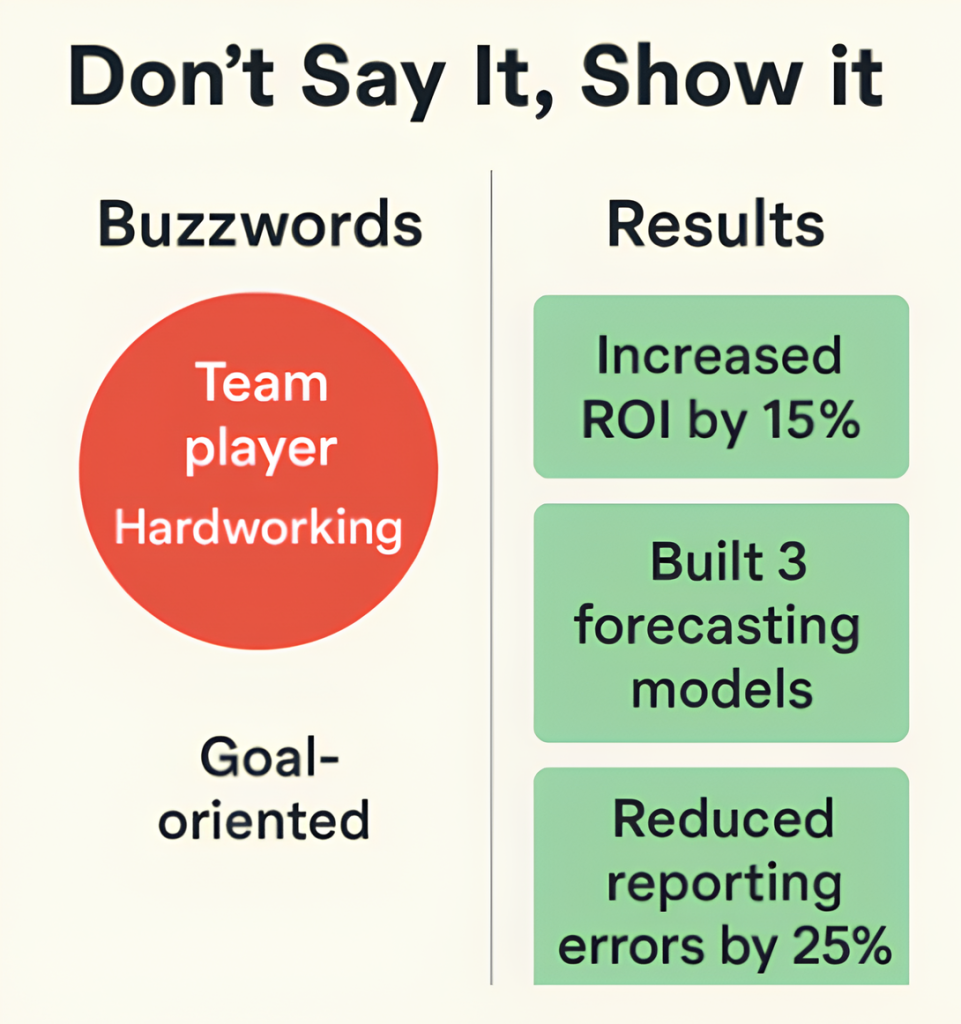6 Common Financial Analyst Resume Mistakes (and How to Avoid Them)
Your financial analyst resume might be costing you interviews without realizing it. Small mistakes—like missing technical skills or using vague buzzwords—can make a difference in a competitive finance job market. Avoid the most common financial analyst resume pitfalls and position yourself as a top candidate.
Join over 2 million professionals who advanced their finance careers with 365. Learn from instructors who have worked at Morgan Stanley, HSBC, PwC, and Coca-Cola and master accounting, financial analysis, investment banking, financial modeling, and more.
Start for FreeAre you applying for finance jobs? Your resume might be holding you back more than you think. In a field as competitive as finance, even minor errors can be costly—recruiters often need just one reason to pass on a candidate. I’ve been through the process myself, and over the years, I’ve learned what separates a standout financial analyst resume from one that gets ignored.
In this article, I’ll break down the six most common mistakes candidates make on their finance resumes and show you how to avoid them so you can increase your chances of landing interviews.
1. Including Everything—Even the Irrelevant Stuff
Understandably, you want to show that you’ve been productive and hardworking. But cramming your resume with every job you’ve ever had can backfire regardless of its relevance to finance. Finance recruiters are short on time. They’re scanning for a straightforward, focused narrative that proves you’re prepared for the role.
Are you applying for an analyst position? If you’re crafting a financial analyst resume, your summer job at a café only matters if it directly connects to skills like handling transactions, staying detail-oriented, or performing under pressure. Every line on your resume should answer one key question:
Why does this matter for a finance job?
If it doesn’t strengthen your case, leave it out. When it comes to resume writing, less truly is more—especially when you need to make a strong first impression.
2. Leaving Out Technical Skills Recruiters Are Seeking
Finance is a technical field—there’s no way around it. If your resume doesn’t list the core tools and techniques you know, recruiters may not give it a second look. Don’t assume they’ll read between the lines. They need to see, at a glance, that you can handle the job’s demands. You’re already at a disadvantage if you’re not explicitly mentioning skills like the following.
- Excel
- Financial modeling
- Valuation techniques
- Data analysis
- PowerPoint (for presenting insights clearly)
Spell It Out
Create a dedicated Skills section that lists the tools and methods you’re confident using. Under your experience, highlight examples. Perhaps you built a DCF model or designed a dashboard in Power BI; those details matter. In finance, technical skills aren’t optional. They’re the baseline requirement to get your foot in the door.
3. Using Buzzwords Instead of Showing Real Results
Phrases like motivated, hardworking, and team player might sound good—but they don’t prove anything. In finance, hiring managers care about outcomes. They want to know precisely what you did and what impact it had.

See the difference? A strong financial analyst resume is built on actions, numbers, and measurable results. Anyone can claim they’re hardworking; very few can show the value they delivered. Focus on concrete achievements because results speak louder than buzzwords.
Skip the Fluff
4. Submitting a Sloppy, Hard-to-Read Resume
It might seem basic, but attention to detail is everything in finance. If your resume looks cluttered, inconsistent, or unprofessional, it sends one loud message: You don’t take details seriously.
That’s a dealbreaker in a field where precision is non-negotiable. Your resume should be clean, structured, and easy to scan:
- Use a classic, readable font like Arial, Calibri, or the newest Aptos.
- Keep formatting consistent for dates, job titles, and bullet points.
- Maintain even margins and spacing.
- Avoid colors, headshots, or fancy layouts—this isn’t a design contest.
In finance, your resume isn’t just a summary; it’s a reflection of your professionalism. Treat it like a sample of your work.
Make It Sharp
5. Using the Same Generic Resume for Every Finance Job
Creating one resume and sending it to every finance job is tempting. But recruiters can spot a generic application instantly—and it’s a quick way to land in the “No” pile.
Every finance role is slightly different. Some emphasize financial modeling; others prioritize forecasting, risk management, or client reporting. If you don’t tailor your financial analyst resume, you’re missing a valuable opportunity to show you understand what this employer needs. You don’t need to start from scratch every time, but you should:
- Adjust bullet points to emphasize the most relevant skills.
- Reorder your experience to spotlight what matches the job description.
- Use keywords and phrases from the posting to reflect alignment.
That small, strategic effort can set you apart. In finance, the candidates who show they’ve done their homework often get the interview.
6. Ignoring Keywords from the Job Description
Many finance companies use Applicant Tracking Systems (ATS)—software that scans resumes for specific keywords before a human ever sees them. If your financial analyst resume doesn’t include terms like the following, you could get filtered out automatically—even if you’re highly qualified:
- Financial analysis
- Budgeting and forecasting
- Variance analysis
- Excel modeling
- Valuation
The good news? Most of the keywords you need are hiding in plain sight—in the job description. Before you hit ‘Submit Application,’ scan the posting and ensure your resume reflects the employer’s language. This doesn’t mean stuffing it with random terms. Just be intentional. Match their terminology naturally where it fits your experience.
Speaking the same language as the job description gives you a much better shot at getting past the ATS—and into the hands of a real recruiter.
Financial Analyst Resume: Make Every Line Count
We’ve covered six common mistakes that can quietly sabotage your finance resume. The goal isn’t to make your resume longer or dress it up with buzzwords; it’s to present a clear, focused snapshot of your skills and show that you understand the role demands. Your financial analyst resume doesn’t need to be flawless; it just needs to make one matter obvious to the person reading it: This is someone worth interviewing.
To ensure you truly are that candidate, consider joining the 365 Financial Analyst platform—where you can build the skills and confidence that make every line on your resume count.
